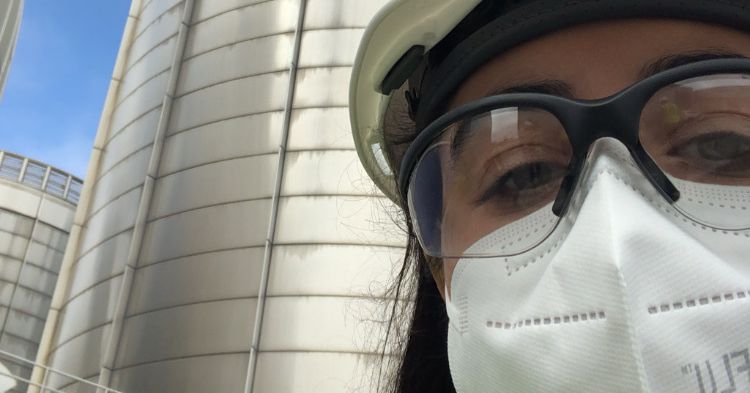The Verge’s Nicole Wetsman on the tools she uses for covering health news
Source: The Verge added 18th Mar 2021We wouldn’t have tech without science, and The Verge wouldn’t be what it is without its team of science reporters. In this time of pandemics, Mars landings, and climate controversies, our skilled science team is more important than ever. We talked to Nicole Wetsman, one of our top science and health reporters, to find out how she does her job and what tools she uses.
What is your job at The Verge?
I’ve always been interested in science and health, but I never wanted to work in a lab or be a doctor. Reporting on those subjects gave me a way to learn and work with those ideas. I write about science, health, and health technology for The Verge. For the past year, that’s primarily meant covering COVID-19 — everything from testing technology to the vaccine rollout to public health data systems. I also help our video team script health-related videos and sometimes jump in as an on-camera host.
What is the process you follow when you are writing a science article?
I usually start by reading through any research articles on a particular topic and then talking with scientists and other experts who work in that area. That might include people who did a study or built a new health app or people who work in fields that might apply the new innovation. Then, I organize my research, synthesize what I found, and write up a story.
What hardware tools do you use for your work?
I’m embarrassingly low-tech for a reporter at a technology website. For the most part, I just use my 13-inch MacBook Pro, AirPods, and iPhone 12 to do everything. Occasionally, I pull out a Zoom F1 Field Recorder to record voice-overs for video projects.
What software tools do you use for your work?
I do most of my writing and research organization in Google Docs. I use the recording and transcription service Otter for interviews. It matches audio with the transcript, so I can easily go back and find whatever part of the interview I need, even if the transcription isn’t perfect. (It usually isn’t.)
When I need to find scientific research on any topic vaguely medical, I turn to PubMed, a search engine housed at the National Institutes of Health. I also use Google Scholar to find academic research articles.
Are there any other tools that you use?
I write out my to-do lists and schedule in a Moleskine weekly planner, which is the only notebook I’ve found with a layout that works for me.
What advice do you have for people who are considering reporting as a profession?
Journalism can sometimes seem like a competitive field, with reporters jockeying for scoops, intel, and access. At the core, though, it’s inherently collaborative. Working with others means benefiting from their ideas, edits, and perspectives, and it makes the final product better.
brands: Area Built Core Google Intel iPhone IPHONE 12 It Jump Macbook Moleskine New One other Pro Team Wanted Writing Zoom media: 'The Verge' keywords: App Audio Google iPhone iPhone 12 notebook Software
Related posts
Notice: Undefined variable: all_related in /var/www/vhosts/rondea.com/httpdocs/wp-content/themes/rondea-2-0/single-article.php on line 88
Notice: Undefined variable: all_related in /var/www/vhosts/rondea.com/httpdocs/wp-content/themes/rondea-2-0/single-article.php on line 88
Related Products
Notice: Undefined variable: all_related in /var/www/vhosts/rondea.com/httpdocs/wp-content/themes/rondea-2-0/single-article.php on line 91
Warning: Invalid argument supplied for foreach() in /var/www/vhosts/rondea.com/httpdocs/wp-content/themes/rondea-2-0/single-article.php on line 91
